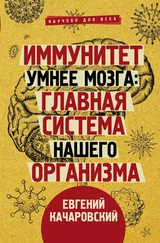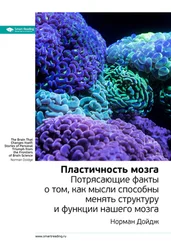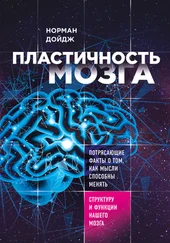23 E. Kross et al., ‘Social rejection shares somatosensory representations with physical pain’, Proceedings of the National Academy of Sciences , 2011, 108 (15), pp. 6270–75
24 H. E. Fisher et al., ‘Reward, addiction, and emotion regulation systems associated with rejection in love’, Journal of Neurophysiology , 2010, 104 (1), pp. 51–60
25 J. M. Smyth, ‘Written emotional expression: Effect sizes, outcome types, and moderating variables’, Journal of Consulting and Clinical Psychology , 1998, 66 (1), p. 174
26 H. Thomson, ‘How to fix a broken heart’, New Scientist , 2014, 221 (2956), pp. 26–7
27 R. I. Dunbar, ‘The social brain hypothesis and its implications for social evolution’, Annals of Human Biology , 2009, 36 (5), pp. 562–72
28 T. Dávid-Barrett and R. Dunbar, ‘Processing power limits social group size: computational evidence for the cognitive costs of sociality’, Proceedings of the Royal Society of London B: Biological Sciences , 2013, 280 (1765), 10.1098/rspb.2013.1151
29 S. E. Asch, ‘Studies of independence and conformity: I. A minority of one against a unanimous majority’, Psychological Monographs: General and Applied , 1956, 70 (9), pp. 1–70
30 L. Turella et al., ‘Mirror neurons in humans: consisting or confounding evidence?’, Brain and Language , 2009, 108 (1), pp. 10–21
31 B. Latané and J. M. Darley, ‘Bystander “apathy”’, American Scientist , 1969, pp. 244–68
32 I. L. Janis, Groupthink: Psychological Studies of Policy Decisions and Fiascoes , Houghton Mifflin, 1982
33 S. D. Reicher, R. Spears and T. Postmes, ‘A social identity model of deindividuation phenomena’, European Review of Social Psychology , 1995, 6 (1), pp. 161–98
34 S. Milgram, ‘Behavioral study of obedience’, Journal of Abnormal and Social Psychology , 1963, 67 (4), p. 371
35 S. Morrison, J. Decety and P. Molenberghs, ‘The neuroscience of group membership’, Neuropsychologia , 2012, 50 (8), pp. 2114–20
36 R. B. Mars et al., ‘On the relationship between the “default mode network” and the “social brain”’, Frontiers in Human Neuroscience , 2012, vol. 6, article 189
37 G. Northoff and F. Bermpohl, ‘Cortical midline structures and the self’, Trends in Cognitive Sciences , 2004, 8 (3), pp. 102–7
38 P. G. Zimbardo and A. B. Cross, Stanford Prison Experiment , Stanford University, 1971
39 G. Silani et al., ‘Right supramarginal gyrus is crucial to overcome emotional egocentricity bias in social judgments’, Journal of Neuroscience , 2013, 33 (39), pp. 15466–76
40 L. A. Strömwall, H. Alfredsson and S. Landström, ‘Rape victim and perpetrator blame and the just world hypothesis: The influence of victim gender and age’, Journal of Sexual Aggression , 2013, 19 (2), pp. 207–17
Глава 8. Когда мозг ломается
1 V. S. Ramachandran and E. M. Hubbard, ‘Synaesthesia – a window into perception, thought and language’, Journal of Consciousness Studies , 2001, 8 (12), pp. 3–34
2 См. главу 3, п.1
3 R. Hirschfeld, ‘History and evolution of the monoamine hypothesis of depression’, Journal of Clinical Psychiatry , 2000
4 J. Adrien, ‘Neurobiological bases for the relation between sleep and depression’, Sleep Medicine Reviews , 2002, 6 (5), pp. 341–51
5 D. P. Auer et al., ‘Reduced glutamate in the anterior cingulate cortex in depression: An in vivo proton magnetic resonance spectroscopy study’, Biological Psychiatry , 2000, 47 (4), pp. 305–13
6 A. Lok et al., ‘Longitudinal hypothalamic – pituitary – adrenal axis trait and state effects in recurrent depression’, Psychoneuroendocrinology , 2012, 37 (7), pp. 892–902
7 H. Eyre and B. T. Baune, ‘Neuroplastic changes in depression: a role for the immune system’, Psychoneuroendocrinology , 2012, 37 (9), pp. 1397–416
8 W. Katon et al., ‘Association of depression with increased risk of dementia in patients with type 2 diabetes: The Diabetes and Aging Study’, Archives of General Psychiatry , 2012, 69 (4), pp. 410–17
9 A. M. Epp et al., ‘A systematic meta-analysis of the Stroop task in depression’, Clinical Psychology Review , 2012, 32 (4), pp. 316–28
10 P. F. Sullivan, M. C. Neale and K. S. Kendler, ‘Genetic epidemiology of major depression: review and meta-analysis’, American Journal of Psychiatry , 2007, 157 (10), pp. 1552–62
11 T. H. Holmes and R. H. Rahe, ‘The social readjustment rating scale’, Journal of Psychosomatic Research , 1967, 11 (2), pp. 213–18
12 D. H. Barrett et al., ‘Cognitive functioning and posttraumatic stress disorder’, American Journal of Psychiatry , 1996, 153 (11), pp. 1492–4
13 P. L. Broadhurst, ‘Emotionality and the Yerkes – Dodson law’, Journal of Experimental Psychology , 1957, 54 (5), pp. 345–52
14 R. S. Ulrich et al., ‘Stress recovery during exposure to natural and urban environments’, Journal of Environmental Psychology , 1991, 11 (3), pp. 201–30
15 K. Dedovic et al., ‘The brain and the stress axis: The neural correlates of cortisol regulation in response to stress’, Neuroimage , 2009, 47 (3), pp. 864–71
16 S. M. Monroe and K. L. Harkness, ‘Life stress, the “kindling” hypothesis, and the recurrence of depression: Considerations from a life stress perspective’, Psychological Review , 2005, 112 (2), p. 417
17 F. E. Thoumi, ‘The numbers game: Let’s all guess the size of the illegal drug industry’, Journal of Drug Issues , 2005, 35 (1), pp. 185–200
18 S. B. Caine et al., ‘Cocaine self-administration in dopamine D₃ receptor knockout mice’, Experimental and Clinical Psychopharmacology , 2012, 20 (5), p. 352
19 J. W. Dalley et al., ‘Deficits in impulse control associated with tonically-elevated serotonergic function in rat prefrontal cortex’, Neuropsychopharmacology , 2002, 26, pp. 716–28
20 T. E. Robinson and K. C. Berridge, ‘The neural basis of drug craving: An incentive-sensitization theory of addiction’, Brain Research Reviews , 1993, 18 (3), pp. 247–91
21 R. Brown, ‘Arousal and sensation-seeking components in the general explanation of gambling and gambling addictions’, Substance Use & Misuse , 1986, 21 (9–10), pp. 1001–16
22 B. J. Everitt et al., ‘Associative processes in addiction and reward the role of amygdala‐ventral striatal subsystems’, Annals of the New York Academy of Sciences , 1999, 877 (1), pp. 412–38
23 G. M. Robinson et al., ‘Patients in methadone maintenance treatment who inject methadone syrup: A preliminary study’, Drug and Alcohol Review , 2000, 19 (4), pp. 447–50
24 L. Clark and T. W. Robbins, ‘Decision-making deficits in drug addiction’, Trends in Cognitive Sciences , 2002, 6 (9), pp. 361–3
25 M. J. Kreek et al., ‘Genetic influences on impulsivity, risk taking, stress responsivity and vulnerability to drug abuse and addiction’, Nature Neuroscience , 2005, 8 (11), pp. 1450–57
26 S. S. Shergill et al., ‘Functional anatomy of auditory verbal imagery in schizophrenic patients with auditory hallucinations’, American Journal of Psychiatry , 2000, 157 (10), pp. 1691–3
27 P. Allen et al., ‘The hallucinating brain: a review of structural and functional neuroimaging studies of hallucinations’, Neuroscience & Biobehavioral Reviews , 2008, 32 (1), pp. 175–91
28 S.-J. Blakemore et al., ‘The perception of self-produced sensory stimuli in patients with auditory hallucinations and passivity experiences: evidence for a breakdown in self-monitoring’, Psychological Medicine , 2000, 30 (05), pp. 1131–9
Читать дальше
Конец ознакомительного отрывка
Купить книгу












